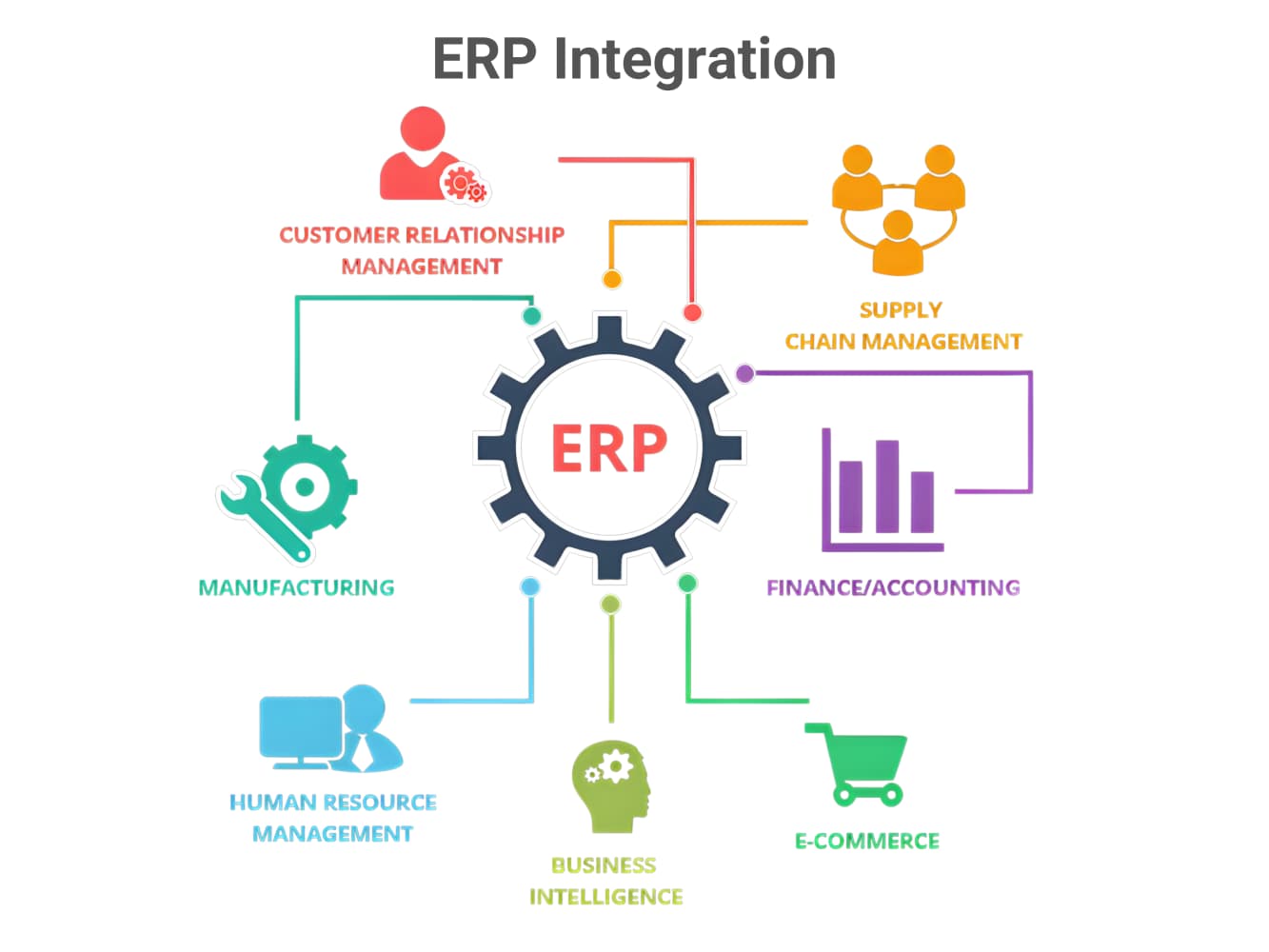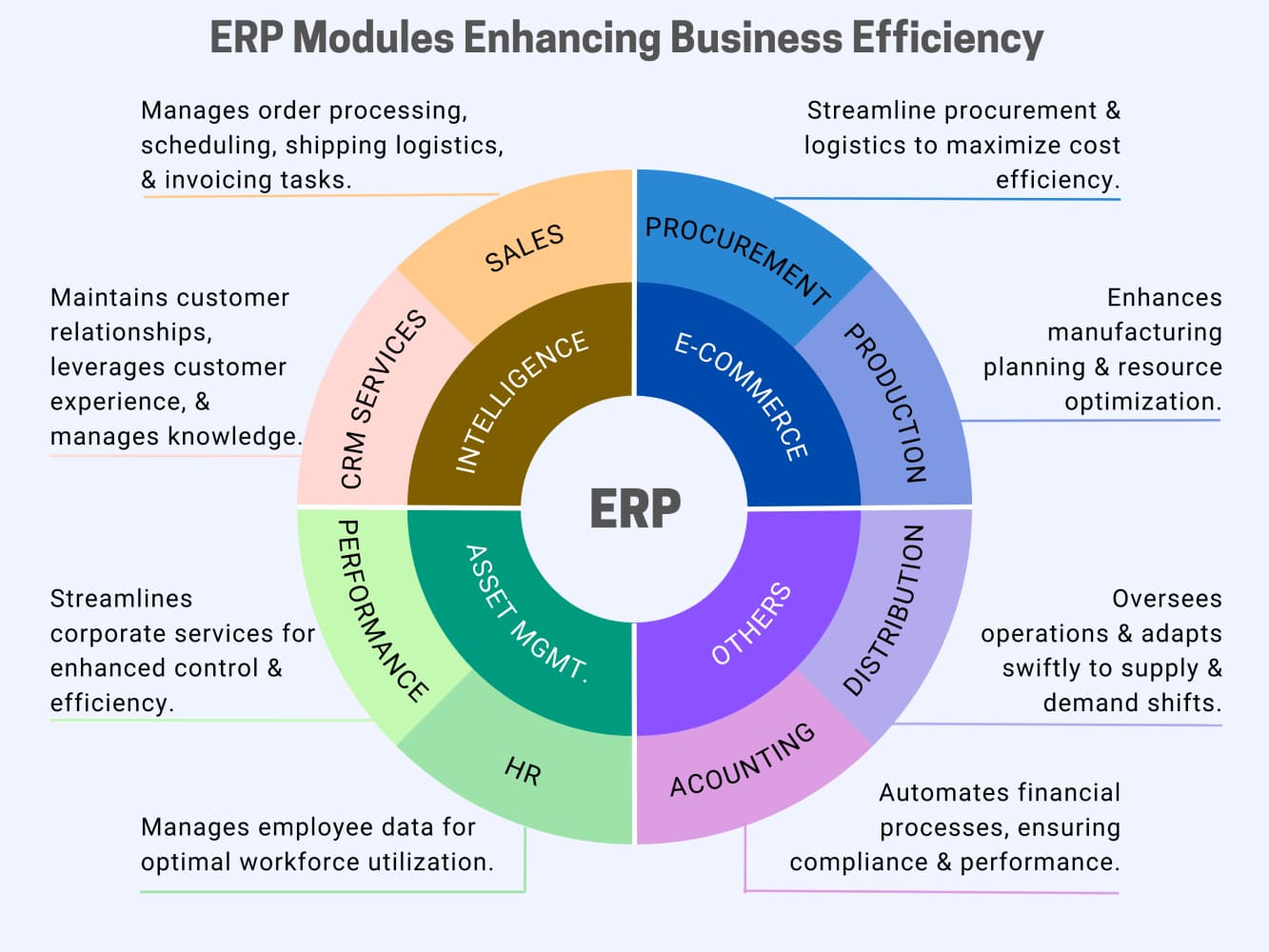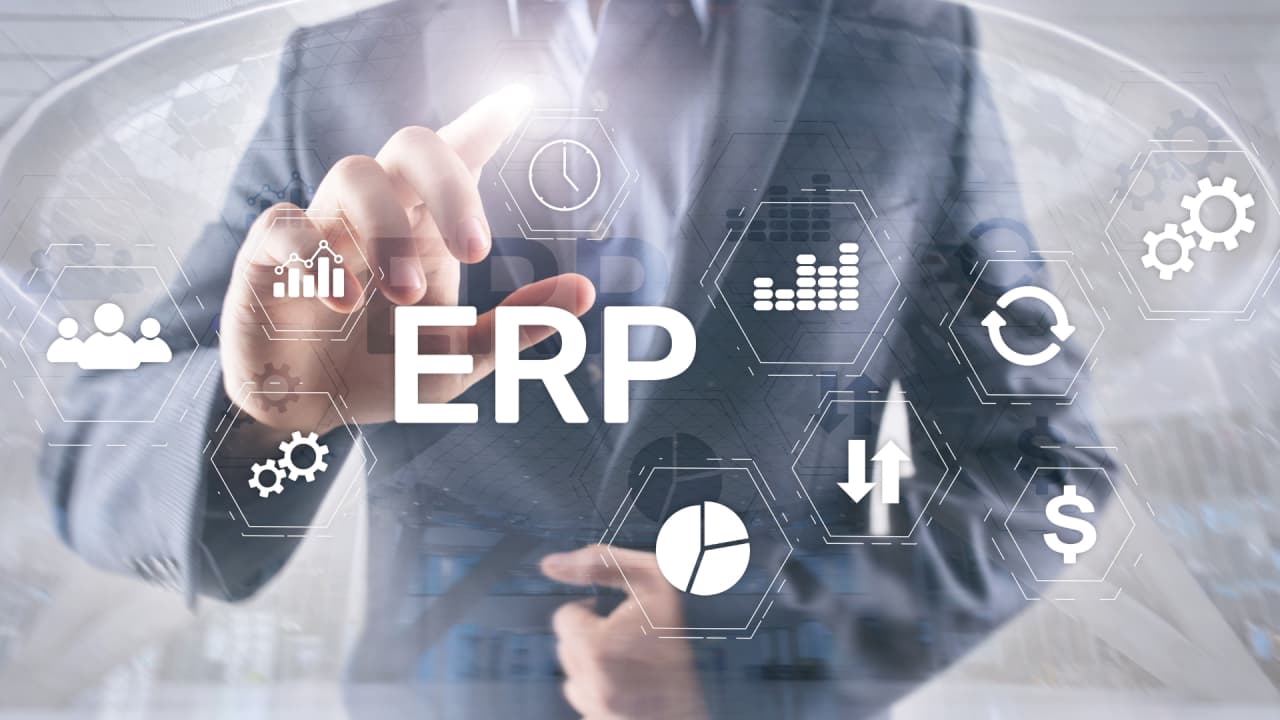AI-driven Enterprise Resource Planning (ERP) tools are changing the way businesses work, making them much more efficient. AI technologies streamline operations and enhance decision-making abilities in various areas like finance and human resources. Important breakthroughs such as machine learning, natural language processing, and predictive analytics have become essential parts of today’s ERP systems.
Explore and Master Your Legal Agreements and Contract Management with AI at Legaliser.com.
Key takeaways to consider:
- Increased automation in workflows
- Enhanced user support through virtual assistants
- Improved compliance in legal operations with AI Legal Document Management
As organizations adopt these new technologies, the influence of AI on business processes continues to grow. This allows companies to respond more quickly to market demands and gain a competitive edge. The shift towards AI-powered solutions will only speed up in 2024, making it crucial for businesses to stay updated and adjust accordingly.
Understanding AI in Enterprise Resource Planning (ERP)
Enterprise Resource Planning (ERP) systems are comprehensive platforms that integrate core business processes across various departments. They are designed to streamline operations, enhance data accuracy, and improve overall efficiency. By providing a centralized database, ERP systems facilitate real-time information sharing, which is crucial for informed decision-making.
Key Functions of ERP Systems:
Financial Management: Automates accounting processes and provides insights on financial performance.
Human Resources Management: Streamlines payroll, recruitment, and employee management. (Strang KD & Sun Z, Discov Arts Intell., 2022)
Supply Chain Management: Optimizes inventory levels and enhances order fulfillment processes.
Customer Relationship Management (CRM): Supports customer engagement through data-driven strategies.

The integration of AI applications in ERP is transforming these systems into intelligent solutions that adapt to changing business needs. With the power of machine learning, these tools analyze vast amounts of data to identify patterns and generate actionable insights.
Role of AI Technologies in ERP:
Predictive Analytics: Anticipates future trends by analyzing historical data, enabling proactive decision-making.
Natural Language Processing (NLP): Enhances user interactions with ERP systems through chatbots and virtual assistants, improving accessibility.
Automated Workflows: Reduces manual tasks by automating routine processes, freeing up employee time for strategic initiatives.
The adoption of AI in Enterprise Resource Planning not only streamlines operations but also empowers organizations to leverage their data more effectively. As companies look to optimize their workflows and boost productivity, AI-driven ERP solutions will play a pivotal role in achieving these objectives.
Predictive Analytics
Predictive analytics utilizes historical data to forecast future trends. In ERP applications, it plays a crucial role in:
Financial Forecasting: By analyzing past performance, businesses can anticipate revenue streams and manage budgets more effectively.
Risk Management: Predictive models identify potential financial risks before they materialize, allowing for proactive measures to be taken.
Automation in Finance and Accounting
Both NLP and predictive analytics contribute significantly to automation in finance and accounting processes. They streamline operations by:
Reducing Manual Workload: Automating routine tasks such as invoicing or expense tracking frees up valuable time for finance teams to focus on strategic initiatives.
Improving Decision-Making: Real-time insights derived from predictive analytics empower financial professionals to make informed decisions quickly.
The integration of these AI technologies within ERP systems not only enhances operational efficiency but also elevates the overall decision-making process across various departments. As organizations embrace these advancements, they position themselves for greater agility and competitiveness in the market.
This following graphic illustrates how ERP modules enhance business efficiency by integrating various operational functions, such as procurement, production, CRM, HR, and finance. Each module plays a vital role: from managing customer relationships to optimizing manufacturing resources, and automating financial processes. The inner circle highlights core areas like Business Intelligence, which transforms data into actionable insights; e-Commerce, which drives external business strategies; and Enterprise Asset Management, which optimizes asset life cycles, improves utilization, and cuts costs using analytics. For “Others“, ERP systems may also include specialized modules such as Compliance Management, which ensures that businesses adhere to industry regulations and internal policies, thereby mitigating legal risks and improving operational standards.

AI-Driven ERP Tools for 2024
The integration of artificial intelligence into enterprise resource planning tools is transforming the landscape of business operations in 2024. Companies are using advanced AI technologies to improve efficiency, simplify processes, and ensure compliance across various industries. Leading companies in the market are introducing innovative solutions that redefine how organizations manage their resources.
What Are AI-Driven ERP Tools?
AI-driven ERP tools are software applications that use artificial intelligence technologies to help businesses manage their resources effectively. These tools integrate various functions such as finance, human resources, supply chain management, and customer relationship management into a single system.
Future Trends in AI-Driven ERP Tools: By staying ahead of these trends, organizations can leverage AI-driven ERP tools not only for operational efficiency but also for strategic advantage in a competitive landscape.
Challenges in Implementing AI-Driven ERP Tools
While there are numerous benefits associated with AI-driven ERP tools, organizations may face challenges during implementation:
Data Quality Issues: The effectiveness of AI algorithms depends on the quality of data used for training. Poor-quality or inconsistent data can lead to inaccurate predictions.
Change Management: Introducing new technology requires change management efforts to ensure smooth adoption by employees.
Integration Complexities: Integrating AI-driven ERP tools with existing systems may pose technical challenges that need to be addressed.
Streamlining Processes with Legal Operations Automation Tools
The integration of AI within legal departments serves as a catalyst for process optimization. Legal tech ERP systems are increasingly adopting AI-driven solutions to enhance efficiency and reduce manual workloads. With the rise of legal operations automation tools, firms can streamline various processes, from contract management to compliance monitoring.
Key advantages of employing AI in legal operations include:
AI Legal Process Automation: Automating routine tasks minimizes human intervention, allowing legal teams to focus on more complex matters.
AI-Powered Legal Operations: These tools provide insights into case management, enabling better decision-making and resource allocation.
AI Legal Workflow Optimization: By analyzing historical data, AI can predict outcomes and streamline workflows, significantly reducing time spent on administrative tasks.
Examples of successful implementations showcase the potential of these technologies:
Contract Management: AI algorithms can review contracts for compliance issues, flagging any discrepancies before they escalate. This proactive approach minimizes risks associated with legal obligations.
Legal Research: Natural language processing (NLP) enables quicker access to relevant case law and statutes. Lawyers can leverage advanced search capabilities to find pertinent information efficiently.
Risk Management: AI tools assist in assessing and mitigating legal risks by analyzing patterns in litigation data. This foresight allows firms to adapt their strategies proactively.
The growing reliance on legal ERP software equipped with these features enhances collaboration among team members and stakeholders. Enhanced visibility into operations fosters accountability while maintaining compliance with regulations.
As businesses continue embracing these innovations, the landscape of legal operations will evolve dramatically—leading to increased agility and improved overall performance in managing legal affairs.
Challenges and Considerations for Implementing AI in ERP Systems
Implementing AI-driven ERP systems presents several challenges that organizations must navigate. Key considerations include:
Customization Challenges in ERP Systems
Tailoring AI Solutions: Businesses often face hurdles in customizing AI functionalities to fit their unique processes. The complexity of existing workflows may hinder seamless integration.
Scalability Issues: As organizations grow, the need for scalable solutions becomes critical. Custom-built AI features may require extensive modifications to accommodate future changes.
Integration with Legacy Systems: Many companies operate on legacy ERPs, making it difficult to incorporate AI tools without significant overhauls.
Security Risks with AI Integration
Data Privacy Concerns: Integrating AI raises substantial data privacy issues. Companies must ensure compliance with regulations such as GDPR while handling sensitive information.
Vulnerability to Cyber Threats: The increased reliance on AI can expose organizations to potential cyberattacks. Hackers may target AI algorithms and data sets, necessitating robust security measures.
Trust in Automated Decisions: Organizations must grapple with the reliability of AI-generated insights. Misjudgments can have severe consequences, leading to skepticism among users regarding automated processes.
Addressing these challenges requires a strategic approach. Businesses should prioritize thorough assessments of their current systems and engage expertise in both AI and ERP integration. This investment not only mitigates risks but also paves the way for successful implementation of advanced technologies in enterprise resource planning.
Transform Your Legal Agreements and Contract Management with AI at Legaliser.com.
Future Trends in the Convergence of AI and ERP Beyond 2024
The integration of AI within ERP systems is expected to evolve significantly, reflecting the changing landscape of the future of work with technology. Businesses will increasingly rely on AI-driven insights to make informed decisions, streamline operations, and enhance customer experiences.
Key predictions include:
Greater Automation: AI will facilitate even more automated processes, allowing employees to focus on strategic tasks rather than routine operations.
Enhanced User Interfaces: Natural language processing will lead to more intuitive user interfaces, enabling non-technical staff to interact with complex data effortlessly.
Increased Customization: Tailored solutions powered by machine learning will adapt to specific business needs, improving overall efficiency and productivity.
As organizations adopt these advanced systems, the demand for experts in AI and ERP integration will surge. Companies will seek skilled professionals who can navigate the complexities of these technologies effectively. This demand highlights the importance of training and development programs focused on equipping employees with necessary expertise.
The synergy between AI and ERP systems promises a transformative impact on business operations, driving innovation while creating new opportunities in the workforce. Embracing these trends positions organizations for sustained success in a competitive environment.
Conclusion
The integration of AI into enterprise resource planning (ERP) systems marks a significant change in how organizations operate. This transformation improves efficiency, simplifies processes, and empowers teams with data-driven insights.
Key aspects to consider include:
Improved Decision-Making: AI technologies provide real-time analysis, enabling quicker and more informed choices.
Automation of Routine Tasks: Reducing manual intervention not only saves time but also minimizes human errors.
Enhanced User Experience: AI-driven interfaces offer intuitive interactions, making ERP systems more accessible to all users.
As businesses navigate the complexities of the digital landscape, leveraging these advanced technologies becomes essential. Embracing AI-driven ERP solutions equips organizations with the tools needed for sustainable growth and adaptability in an ever-evolving market. Exploring these innovations will reveal opportunities for increased efficiency and competitive advantage.






